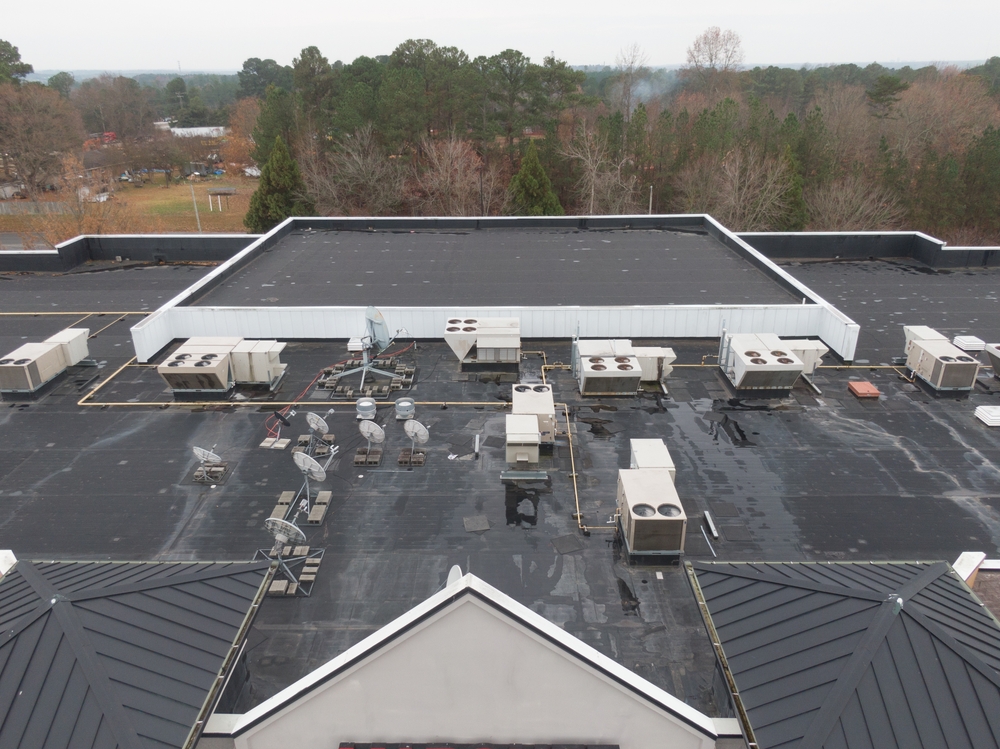
What Types of Warranties are Available for Commercial Roofing?
July 12, 2024 6:15 pm Leave your thoughtsWhen investing in a commercial roofing system, whether for a new installation or replacement, understanding the available warranties is crucial. These warranties provide assurance and protection against defects and unexpected costs over the lifespan of your roof. Here, we delve into the types of warranties commonly offered for commercial roofing and what they entail.
Types of Commercial Roofing Warranties
Manufacturer’s Warranty
One of the primary warranties you’ll encounter is the manufacturer’s warranty. This warranty covers defects in materials that may arise from the manufacturing process. Typically, it guarantees that the roofing materials will perform as expected within a specified period. Manufacturer warranties can vary significantly in terms of coverage duration and what specific issues are covered. It’s essential to review the details to understand limitations, exclusions, and any required maintenance schedules to keep the warranty valid.
Contractor’s Workmanship Warranty
In addition to the manufacturer’s warranty, reputable roofing contractors often provide a workmanship warranty. This warranty covers the installation process and ensures that the roof is installed correctly according to industry standards. Unlike manufacturer warranties, which focus on materials, a workmanship warranty addresses issues that may arise from errors during installation. These warranties can vary in duration and coverage specifics, so it’s crucial to discuss these details with your contractor before starting the project.
Extended Warranties
Extended warranties are optional warranties that can be purchased to supplement the standard manufacturer and workmanship warranties. These warranties typically extend the coverage period beyond what is offered initially. They may cover additional elements such as maintenance services, repairs, or even consequential damages resulting from roof failures. Extended warranties provide peace of mind and may be tailored to meet specific project needs or budget considerations.
System Warranties
Some manufacturers offer system warranties that cover not only the roofing materials but also other components of the roofing system, such as insulation, membranes, and accessories. These comprehensive warranties ensure that all elements of the roofing system work together effectively and are covered under a single warranty. System warranties simplify the warranty process by consolidating coverage under one umbrella, which can be advantageous for managing and documenting warranty claims.
Key Considerations When Choosing a Warranty
Coverage Period
The duration of coverage varies among warranties. Manufacturer warranties typically range from 10 to 30 years, with some offering lifetime coverage for certain materials. Workmanship warranties are generally shorter, often ranging from one to ten years. Extended warranties can further extend these periods, so it’s essential to evaluate how long you expect the roof to perform without major issues.
Coverage Details
Understanding what is covered (and what isn’t) is crucial. Manufacturer warranties usually cover defects in materials, while workmanship warranties cover installation errors. Extended warranties may include additional services or coverages, such as regular inspections or repairs. Clarify these details with your contractor and manufacturer to avoid surprises when filing a claim.
Maintenance Requirements
Many warranties have specific maintenance requirements to remain valid. Regular inspections, documented repairs, and adherence to maintenance schedules may be necessary. Neglecting these requirements can void the warranty, so it’s essential to factor in maintenance costs and responsibilities when considering the overall cost of ownership.
Transferability
Some warranties are transferable to new owners if the property is sold during the warranty period. Transferable warranties can enhance the property’s value and provide reassurance to potential buyers. Check the transferability clause and any associated fees or conditions to understand this aspect fully.
Making an Informed Decision
Choosing the right warranty involves weighing various factors such as coverage duration, specifics, and additional costs. While longer warranties may offer more extended protection, they may also require stricter maintenance and higher upfront costs. Assess your priorities—whether it’s long-term peace of mind, budget constraints, or specific coverage needs—and discuss these with your roofing contractor and manufacturer.
Warranties play a vital role in protecting your investment in commercial roofing. By understanding the types of warranties available—such as manufacturer warranties, workmanship warranties, extended warranties, and system warranties—you can make an informed decision that aligns with your needs and budget. Remember to review warranty details thoroughly, clarify any uncertainties, and adhere to maintenance requirements to maximize the benefits of your chosen warranty. A well-chosen warranty not only provides financial protection but also ensures the longevity and performance of your commercial roofing system.
Need a Roofing Company in Springfield, MA?
Since 1987, R & H Roofing has remained one of the most trusted names in the roofing industry. We specialize in commercial and industrial roofing and offer a wide variety of roofing systems including EPDM systems, TPO Systems, Metal Roofing Systems, BUR Tar & Gravel Systems, Asphalt Shingles, and PVC Systems. We also work with some of the leading manufacturers including Firestone, Carlisle, Duro-last, and Garland. Contact us today to learn more about what we can do for you!
Categorised in: Commercial Roofing
This post was written by admin
